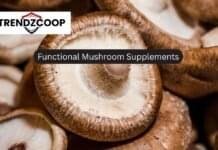Federal Status Under the 2025 Farm Bill
CBG Legality: Cannabigerol (CBG) maintains its federal legal status under the updated 2025 Farm Bill, provided it is derived from hemp containing no more than 0.3% delta-9 THC by dry weight. The 2025 revisions explicitly protect all non-intoxicating cannabinoids, effectively closing the “delta-8 THC loophole” that previously allowed synthetically converted cannabinoids to evade regulation.
This critical clarification establishes CBG as fully compliant when sourced from properly licensed industrial hemp. However, the FDA maintains restrictions on incorporating CBG into food products or dietary supplements pending formal designation as Generally Recognised as Safe (GRAS). This regulatory gray area means while CBG isolate is federally legal, consumer products containing CBG face marketing limitations until the FDA completes its evaluation process, expected to conclude by Q3 2026.
CBG Legality: State-by-State Legality Landscape
The interactive map below reflects CBG’s legal status across all 50 states as of June 2025, based on analysis of state legislation and attorney general advisories:
Fully Legal States (38) including California, Texas, and Florida impose no restrictions on CBG sales or possession. These jurisdictions align with federal standards, requiring only that products derive from registered hemp programs and contain ≤0.3% delta-9 THC. Retailers in these states may sell CBG products without special licensing beyond standard business permits.
Restricted States (9) such as Ohio, Iowa, and South Carolina impose additional constraints. Ohio requires CBG products to be sold exclusively through medical dispensaries to registered patients, while Iowa caps potency at 5mg per serving. South Carolina mandates child-resistant packaging and batch-specific QR codes linking to third-party test reports. These states often classify CBG under broader cannabis regulations rather than hemp frameworks.
Prohibited States (3) including Idaho, Nebraska, and South Dakota maintain complete bans on all hemp-derived cannabinoids regardless of THC content. These states explicitly exclude CBG from their legal hemp definitions, treating possession as a misdemeanor. In Idaho, possession of any cannabinoid product without a THC-free certification carries penalties of up to 1 year in jail.
Also Read: What Is CBG? 2025 Beginner’s Guide to the ‘Mother of Cannabinoids’
Critical Compliance Factors for Businesses
Sourcing protocols represent the foundational compliance requirement. All CBG biomass must originate from USDA-licensed hemp farms with valid 2025 cultivation permits. Documentation must include seed certifications proving use of approved varietals and chain-of-custody records from harvest to extraction. The DEA’s 2025 Hemp Compliance Report indicates 34% of enforcement actions stem from unverified sourcing, including cases where material was imported from non-compliant international farms.
Testing requirements have intensified under 2025 regulations. Reputable third-party labs must verify total THC content (delta-9 THC + THCA × 0.877) remains below 0.3% at the batch level. The updated Farm Bill now requires contaminant screening for 62 pesticides, five heavy metals (arsenic, cadmium, lead, mercury, nickel), and mycotoxins including aflatoxin B1 at thresholds below 2ppb. Crucially, certificates of analysis (COAs) must be ISO 17025-accredited and include quantification of CBG content to prevent mislabeling.
Marketing compliance remains the most frequent violation area. Per FDA Section 301(ll), CBG products cannot make disease-treatment claims such as “treats anxiety” or “reduces inflammation.” The Federal Trade Commission’s 2025 guidance further prohibits unsubstantiated wellness claims like “non-addictive pain relief” without randomized controlled trial evidence. Labeling must include the
FDA disclaimer: “This product is not intended to diagnose, treat, cure, or prevent any disease”
CBG Legality: Consumer and Law Enforcement Risks
Despite federal protections, significant enforcement disparities exist at state and local levels. The DEA’s 2025 National Compliance Report revealed 23% of CBG products failed testing due to THC isomerization during extraction – a process where heat or solvents convert CBGA into delta-8 or delta-10 THC, creating unintended intoxicants. This chemical instability has led to felony charges in restrictive states like Tennessee, where prosecutors argue synthesized THC constitutes illegal cannabis regardless of source material.
Consumers face particular risks during interstate travel. While the Transportation Security Administration (TSA) follows federal hemp guidelines, state troopers in prohibited jurisdictions routinely confiscate CBG products. In April 2025, Nebraska state police filed misdemeanor charges against 37 travelers carrying CBG tinctures purchased legally in Colorado. To mitigate risk, consumers should carry printed COAs showing batch-specific compliance and avoid products with “full-spectrum” claims that may contain trace THCV or THCP isomers.
Businesses must navigate evolving local ordinances. Over 120 counties in otherwise legal states (including Texas and Florida) have enacted bans on inhalable CBG products. In May 2025, a Dallas retailer faced $250,000 in fines for selling CBG pre-rolls despite Texas’ hemp-friendly laws, highlighting the critical importance of municipal compliance research.
CBG Legality: Future Regulatory Outlook
The 2025 Farm Bill established a pathway for FDA regulation of hemp derivatives through the newly created Cannabinoid Task Force (CTF). By Q1 2026, the CTF will issue manufacturing standards for CBG isolation and purity thresholds for consumer products. Simultaneously, the IRS is developing Section 280E tax relief guidelines for compliant CBG businesses, potentially eliminating the current 70% effective tax rate by 2027.
Pending legislation includes the bipartisan CBG Consumer Protection Act (HR 3827), which would establish a federal certification program and preempt state bans. Industry analysts project full FDA approval for CBG as a dietary supplement ingredient by 2028, following the recent precedent set by CBD pharmaceuticals.
Essential Compliance Checklist for CBG Legality
Businesses operating in the CBG space must implement three non-negotiable safeguards. First, maintain real-time compliance monitoring through services like Hemp Benchmark or CannaRegs, which track daily regulatory changes across 3,000+ jurisdictions. Second, secure product liability insurance with explicit cannabinoid coverage – standard policies often contain hemp exclusions.
Third, retain cannabis-specialized counsel for document review; the average non-compliant marketing claim now carries $87,000 in FTC penalties according to 2025 enforcement data. Consumers should verify COAs through independent platforms like VerifyMyCBD.org before purchase and avoid any product lacking batch-specific testing. When traveling, email COAs to yourself and carry printed copies in sealed envelopes to demonstrate good-faith compliance efforts if questioned.


